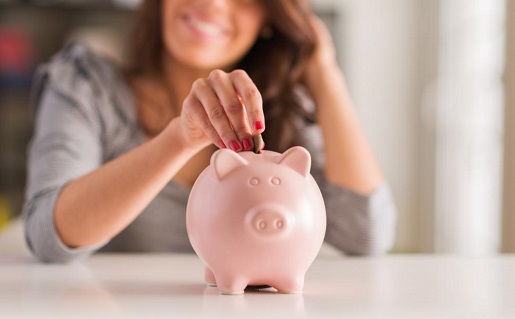In the same way that a house is supported by good pillars, a good investment plan is maintained in the face of adversity, if it has a good structure. And at the base, there must be a solid position, so as not to make mistakes in our investments.
Why is it important to have a good emergency fund before you start investing? Fundamentally, to avoid touching your investments as a result of an unforeseen event. There is nothing worse than being forced to carry a fire sale out of necessity at the wrong time.
So what is an emergency fund?
The emergency fund is an amount of money reserved for emergency situations or to deal with an unforeseen event. The fundamental purpose of the planning and management of personal finances is to guarantee your peace of mind, avoid having to disinvest at unwanted times, or, in the worst case, avoid having to use a credit card or personal loan.
How much should you have in an emergency fund?
Not having an emergency fund to use when needed is as negative as having too much-unattended liquidity. You have to think of your household finances as if they were the finances of a company. In order to be able to organize yourself, you need to know how much money in circulation you will need to meet your frequent or budgeted expenses on average per month.
To do this, you have to keep track of your income and expenses and once you control your day-to-day, make an annual budget. In this way, you will know with certainty how much money you can save, what to invest, and for how long to reach your financial goals.
The emergency fund should cover 6 to 9 months of your average expenses. This amount is usually enough to cover an extra expense or an untimely setback, such as a car breakdown, an ERTE, a medical expense, or an unplanned wedding, for example.
In any case, each one is as it is. You may need to withdraw a larger amount of money to sleep peacefully. It is always your choice. However, if you have a fairly stable work and personal life, it does not make much sense to set aside a large amount of money since over time you will lose part of that money due to the effect of inflation. Keep that in mind.
Where to keep the money of an emergency fund?
The money from an emergency fund must always be available, although it must be deposited in a different account than your day-to-day account, to avoid spending on superfluous things.
The most advisable thing is to have it in a separate savings account, which you cannot use to pay expenses with a card, in addition to forcing yourself to go to the bank or have to make an online transfer over the Internet, so that you are aware that you are using money that you shouldn’t touch
Having it set aside does not mean that you cannot obtain profitability for this money. With the current state of interest rates, it is difficult to find accounts where you can make money profitable. But there are various options. Traditional banks hardly offer benefits, but on the internet, you can find the best conditions for your savings accounts at Raisin, a platform that brings together the best offers from a panel of European banks.
To have your emergency fund as quickly as possible, do not use a product that limits your availability. If you want to use a fixed-term deposit or savings insurance because it is more profitable, make sure that there is no penalty for early withdrawal or cancellation. This money is not to be put at risk or in assets that present a valuation risk. The best, without a doubt, for these cases is to have a savings account or a savings plan. What must prevail is maximum liquidity and security.
Importance of the Emergency Fund before investing. Requirements and summary
Creating an emergency fund is not easy. It requires keeping track of income and expenses to then be able to make a savings forecast. Withdraw an amount adapted to the individual needs and circumstances of each one. The essential requirements of the savings account to save your contingency fund are separation from the expense account, maximum liquidity, and security. Also, if you can get a good interest, it is always a very valuable extra.
The emergency fund is a key link in financial planning. Firstly, because it prevents you from being able to finance unforeseen events and, secondly, because it will help you maintain your investment plan if the economic situation worsens, without the need to use your investments, focused on your medium and long term. Even if you feel tempted, do not invest in the liquidity of your emergency fund, no matter how good the investment opportunity is.
By following these simple recommendations, you will always maintain solid and healthy personal finances in the face of unforeseen events.
